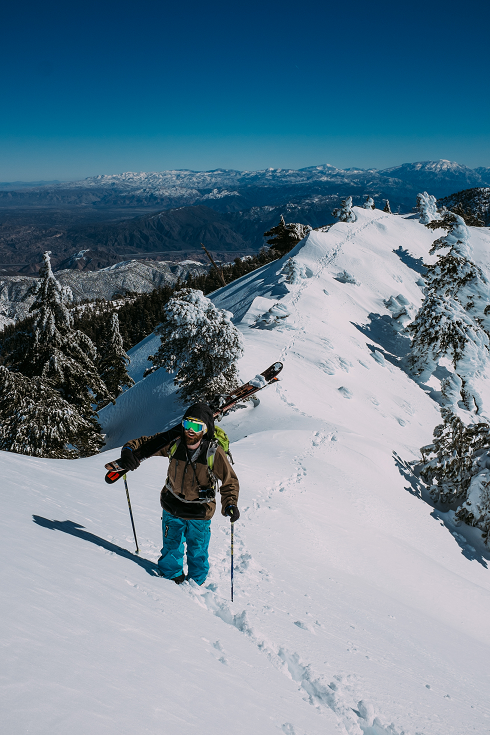Are you planning or have already booked a trip to the slopes? If so, are you prepared? I am not referring to your purchase of the latest ‘look’ to cruise the slopes in style or working out the best Apres ski spots. I am referring to yourself!
Your body, is it prepared and ready to take on the physical demands of skiing or snowboarding to return home without a cast and or crutches? Alpine skiing and snowboarding are classified as very extreme sports due to the involvement of high speeds and an increased propensity for participants to jump and perform acrobatic maneuvers (as seen on TV think The Jump on channel 4).
There are risks involved when participating in snow sports. Alpine skiing and snowboarding take place in environments where medical care may not be readily available on site. Because of these challenges, greater emphasis needs to be placed on skill, preparation, and safety strategies/equipment to prevent serious injury.
I would hope the only time you ride in the chopper is for a scenic flip or heli-ski and not a rescue off the mountain to the local hospital! Before travelling triple check your medical insurance includes extreme sports, as if not you better get an upgrade to it!
In both skiing and snowboarding, the leading cause of death and catastrophic injury is traumatic brain injury (TBI). Head injuries and concussions account for 25 to 30% of injuries, with one of the most high profile cases in recent years being none other than Michael Schumacher springing to mind. Musculoskeletal injuries are far more common, albeit less serious.
When skiing you are at greater risk of sustaining an injury to your lower limb; most commonly knee injuries like tearing the ACL (anterior cruciate ligament) or sprains and tears to the collateral ligaments of the knee. Snowboarders on the other hand sustain most injuries to their upper limb; frequently sprains or fractures to the hand and wrist or shoulder dislocations.
Thankfully however it’s not all doom and gloom. Wearing a helmet and being physically prepared for your trip can significantly reduce your risk of injury. There are also many benefits to a skiing holiday, not only is it fun and being outdoors enjoying the beauty of your natural surroundings is good for your soul and mental outlook. But undoubtedly the physical exertion is great exercise for your musculoskeletal and cardiovascular systems. These tips can help make your winter wonderland wicked rather than weary and wounded!
Why not start your holiday in tip top condition? If you know you have a knee or back niggle visit my self for some hands-on treatments and exercise prescription so you can enjoy your trip without any flare-ups. I can also prescribe strengthening exercises for your knees and quadriceps muscles (thigh muscles); the stronger they are the better they can absorb the impacts of skiing and snowboarding without injury.
Yoga, Pilates and core strengthening will protect your back and improve your balance which again may save you from a tumble and subsequent injury. In addition to this being physically fit will make your skiing better and more enjoyable. Injuries often occur later in the day when fatigue sets in and concentration levels starts to drop. The fitter you are the longer you will be able to stay out on the slopes without increasing your injury risk. Ask your physical therapist for advice on aerobic training leading up to your holiday.
Fortunately, most snow sport injuries can be treated with rest, bracing, pain medication and Sports Therapist. Some more severe fractures and ligament tears may require surgical intervention where recovery periods can vary from 3 to 6 months, and necessitate intensive rehabilitation. So, remember, on returning from your trip, should you have any sprains or strains get treatment early, rather than waiting to see if it will resolve itself. Early treatment and rehabilitation of an injury guarantees better long term outcomes. Chronic pain is a serious condition that can become complex and frustratingly stubborn to manage and overcome.
I’ve put together a guide called “6 Strategies for Avoiding Injury on the Slopes” and it’s accompanied by two leaflets with videos, containing six power exercises for either snowboarding or skiing. To download the leaflet click here
A skiing holiday is great fun, and these risks shouldn’t deter you from going and enjoying your time. Use these tips to get better prepared and stay injury free.
Lastly I hope you enjoy your snow holiday, if you would like more information on exercises to help before you go or to book a session. Just give me a call on 07759689612 or drop me an email at [email protected]. I look forward to hearing from you
